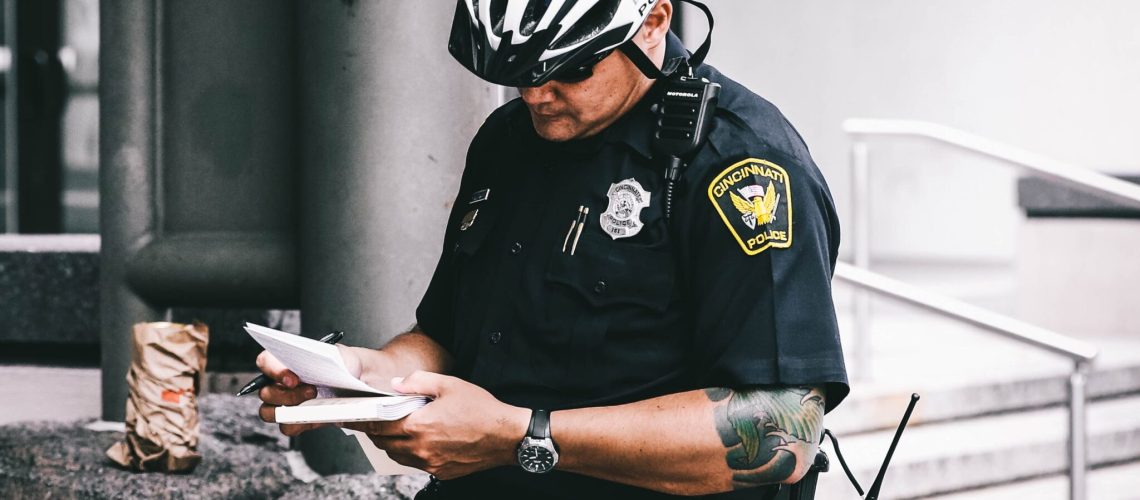The Traffic Citation Trap
I was in Traffic Court covering a hearing for another of our firm’s attorneys last week. While I want to say that I have seen it all in my 22 years of practicing criminal law, what I saw in Traffic Court would make a loan shark blush. The obscene amounts of “court costs” (aka fees and surcharges) that are tagged to every speeding ticket are incredibly lucrative for the city, county and state. Not to mention the legal basis for these “court costs” is so mind numbingly confusing it rivals the federal tax code. If I learned nothing else from this experience, I did learn why speed traps pop up at different times of the year. It is to fill the treasury, fund government retirement accounts and maybe even to try and balance the budget.
For a first lifetime speeding offense, Georgia law authorizes the following fines:
(a) By 5 miles per hour or less shall be no dollars;
(b) By 6 to 10 miles per hour shall not exceed $25.00;
(c) By 11 to 14 miles per hour shall not exceed $100.00;
(d) By 15 to 18 miles per hour shall not exceed $125.00;
(e) By 19 to 23 miles per hour shall not exceed $150.00; or
(f) By 24 to 33 miles per hour shall not exceed $500.00.
A second speeding ticket in one’s lifetime raises the fine for any of the six levels up to $1,000.00. The ultimate fine is solely in the Court’s discretion.
While the fines don’t seem that onerous for a first speeding ticket, it is the number of hidden surcharges to the base fine that is truly shocking. There are anywhere from 12 to 22 surcharges added to the base fines listed above. These surcharges can nearly double your net fine imposed by the Court. In addition, if you are deemed a super speeder (driving over 85 mph on the interstate), add another $200 to your net total.
In trying to make sense of all these surcharges, Judge Gary Jackson, a City of Atlanta Municipal Court judge, testified before the Georgia State Senate, arguing that the current court surcharge system is a nightmare to administer. He stated that there are potentially 22 different surcharges and judges do not have enough discretion because most of these add-ons are mandatory.
The surcharges include:
(a) Jail Staffing Fund;
(b) Peace Officers’ Annuity and Benefit Fund (5% of base fine);
(c) Sheriff’s Retirement Fund ($2 from every ticket issued)—which essentially means that more tickets the police write the healthier their pension fund becomes;
(d) Photo Cost (of $25);
(e) Joshua’s Law (a driver’s education Fund);
(f) Brain & Spinal Injury Trust Fund;
(g) Crime Lab Fee;
(h) Children’s Trust Fund;
(i) Crime Victim’s Emergency Fund;
(j) Indigent Defense Application Fund;
(k) Victim’s Assistance Fund;
(l) Victim Fund (not sure what the difference is);
(m) Peace Officers, Prosecutors and Indigent Defense Fund, Probation Supervision Fee-State; Law Library Fund (PODIDF); and
(n) a second PODIDF Fund (which is 10% of the base fine).
If you can’t pay the fine on the spot, don’t worry. You will be put on probation and you can add on another monthly probation fee until you are done paying your fine.
The last bit of bad news…all these fines and court costs are not the end. Next comes the insurance premium hit for three years.
The lesson in all this, hire a good traffic attorney. Whatever you pay them will pale in comparison to the fines, surcharges and insurance premiums you will inevitably get hit with going to court “pro se.”
References: O.C.G.A. §§ 40-6-1, 40-6-189, 15-23A-1, 15-21-73, 15-21-93, 15-21-149 amongst numerous others.
See also, http://chronicle.augusta.com/news/crime-courts/2013-06-12/police-retirement-fund-county-programs-benefit-traffic-ticket-fines# and http://www.senate.ga.gov/sro/Documents/StudyCommRpts/06CourtSurchargeRpt.pdf










